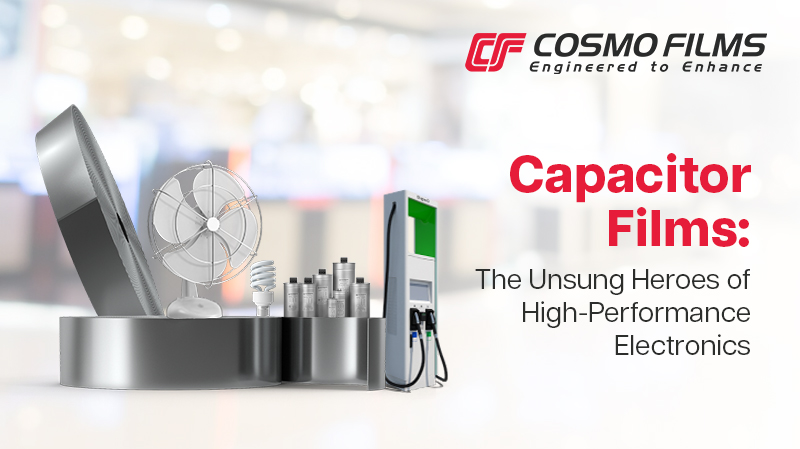Love to hear from you!
Get in touch.

Do you know that capacitor films are like the secret heroes of gadgets? Imagine capacitor films as thin, flexible layers inside capacitors that help store and release energy when needed. Made from polypropylene, they keep your electronics running smoothly.
Let's take an example of air conditioners - capacitor films help start the compressor and keep the cool air flowing efficiently. These capacitor films are tough and reliable and keep electronic items powered up, ensuring they perform their best everyday!
Understanding the Role of Capacitor Films
Capacitors, with their ability to store and release electrical energy, are indispensable in electronic circuits. They filter noise, couple signals, decouple power supplies, and perform numerous other important functions. The dielectric material - a capacitor film, is the key to a capacitor's performance.
The dielectric material between the conductors of a capacitor is critical to its performance. Capacitor films, thin sheets of specialized materials, serve as the dielectric in many advanced capacitors. These films exhibit unique electrical properties that significantly impact the capacitor's behaviour.
Key properties of capacitor polypropylene film include:
How Capacitor Films Enhance Electronics
Do you know that your choice of capacitor films impacts the performance of electronic devices? Let's understand this with the help of examples:
The Future of Capacitor Films
The Film Capacitor Market was valued at US$4 billion in 2023 and is projected to reach US$6.02 billion by 2031. As researchers continue to explore new materials and manufacturing processes to create advanced capacitor films, its demand will boost. These new trends include:
Capacitor films are an essential part of the modern electronics industry, providing the necessary dielectric properties for capacitors used in various applications. The choice of material, type of film, and specific application requirements determine the performance and reliability of the resulting capacitors. With constant innovations and improvements in film capacitors, the picture looks promising and will make electronics work better and more efficiently. Connect with us, a film capacitor manufacturer, for your capacitor film requirements.
Featured Post
Love to hear from you!
Get in touch.